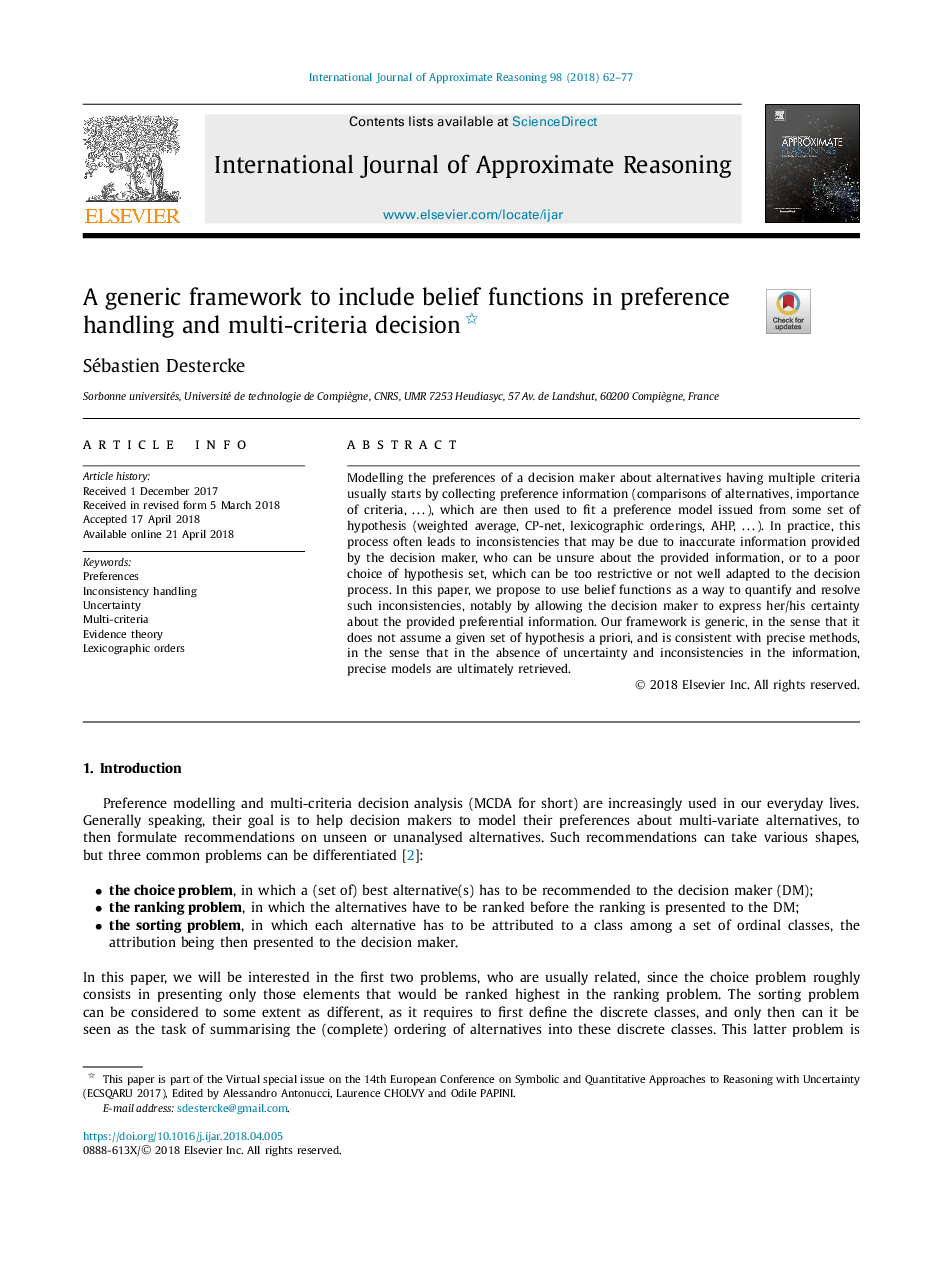| Article ID | Journal | Published Year | Pages | File Type |
|---|---|---|---|---|
| 6858769 | International Journal of Approximate Reasoning | 2018 | 16 Pages |
Abstract
Modelling the preferences of a decision maker about alternatives having multiple criteria usually starts by collecting preference information (comparisons of alternatives, importance of criteria, â¦), which are then used to fit a preference model issued from some set of hypothesis (weighted average, CP-net, lexicographic orderings, AHP, â¦). In practice, this process often leads to inconsistencies that may be due to inaccurate information provided by the decision maker, who can be unsure about the provided information, or to a poor choice of hypothesis set, which can be too restrictive or not well adapted to the decision process. In this paper, we propose to use belief functions as a way to quantify and resolve such inconsistencies, notably by allowing the decision maker to express her/his certainty about the provided preferential information. Our framework is generic, in the sense that it does not assume a given set of hypothesis a priori, and is consistent with precise methods, in the sense that in the absence of uncertainty and inconsistencies in the information, precise models are ultimately retrieved.
Related Topics
Physical Sciences and Engineering
Computer Science
Artificial Intelligence
Authors
Sébastien Destercke,
